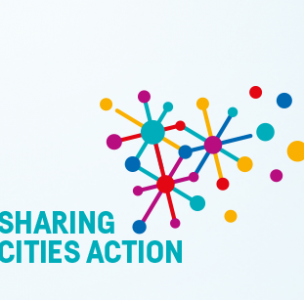
It is no coincidence that Barcelona is leading this global meeting, in light of both its existing ecosystem and the impulse that Barcelona City Council has given to these economic initiatives. Barcelona is a worldwide reference in socially responsible platform economy models. This has been explained in a recent work by the UOC Dimmons research group, which will be published to mark the holding of the Summit. The work, Sharing Cities: A worldwide cities overview on platform economy policies with a focus on Barcelona, identifies and analyses 100 platforms in Barcelona that have a socially responsible approach and that are an example of new ways of interacting between citizens so they can self-organize and help economic activities to thrive. The platforms operate in 28 different economic areas, from the creation and sharing of collaborative culture, to energy or agro-ecological consumption. The study goes on to detect a stage in which collaborative production, supported by digital platforms, will expand and have the potential to break into any area of economic activity in the city.
Som Mobilitat, Katuma, Som Energia, Smart IB, Moodle, Wikiloc, Wikipedia and Mensakas are significant examples of these socially responsible platforms that are aligned with cities’ general interest. They are active, respectively, in the field of shared electrical mobility, the distribution of organic food, renewable energy, labour, free software, open data and food delivery.
Their economic model, which combines participatory governance and social and ecological responsibility with local embeddedness, open knowledge and open technologies, represents a different paradigm for understanding the economy. This model is better aligned with the general interest of cities and does not create disruption or a confrontation with basic rights, such as the right to housing or labour rights. The city of Barcelona consciously proposes to open the debate about the “smart city” and to include models of real citizens’ collaboration.
Calculating the impact of the collaborative economy with conventional economic parameters creates a series of difficulties. How can we measure the economic value generated by Wikipedia, the fifth most visited web portal in the world, generating a volume of economic activity of more than 80 million dollars a year? It is considered a common resource, and its value cannot be expressed solely in monetary terms. How can we measure the economic impact of Moodle, a free software platform for online learning, which does not invoice for its services but has more than 100,000 active projects all over the world? eReuse annually puts more than 5,000 used computers into circuit again in Catalonia, generating jobs and reducing CO2 emissions by 864 tonnes per year. These are just some examples that illustrate that the value and impact generated by the collaborative economy outweigh its monetary value. Other initiatives prove to have transformative effect towards more inclusive and environmentally responsible models. The Katuma platform, which creates alternative avenues for the distribution of organic food, is part of the Open Food Network, which has an annual turnover of 2.5 million euros. Som Mobilitat, an electric car-sharing cooperative that aims to change the mobility model, has already accrued more than 1000 members i
Data show that the collaborative economy sector is, in many cases, an emerging and rapidly expanding sector. Open business models that intend for other business owners to copy the business idea, implement it in their territory, and collaborate to improve the project, as a concept is very new but has huge disruptive potential. Barcelona City Council is trying to incentivize and professionalize this economic area, given the positive impact it generates for the city, and taking into account its rich tradition incooperatives. Barcelona created a specific entrepreneurship programme for commons businesses that was the first of its kind worldwide: La Comunificadora. The programme mentors start-ups, helping them to seek economic viability with open, inclusive, environmentally responsible and replicable business models.
Another policy line of Barcelona City Council is the Matchfunding campaign, which has promoted 22 projects aimed at building a more social and sustainable city. Barcelona is also a benchmark in public policy innovation, organizing co-creation sessions with citizens regarding policies on the collaborative economy and sharing the results with other cities. In 2016 and 2017, Barcelona Activa organized the Procomuns Conference, a space for debate, interaction and networking on commons. This dynamic approach has led the Nesta Foundation – a benchmark in the analysis of global innovation based in the United Kingdom – to highlight the pioneering role of the open business models being promoted in Catalonia in a presentation to the European Commission.

